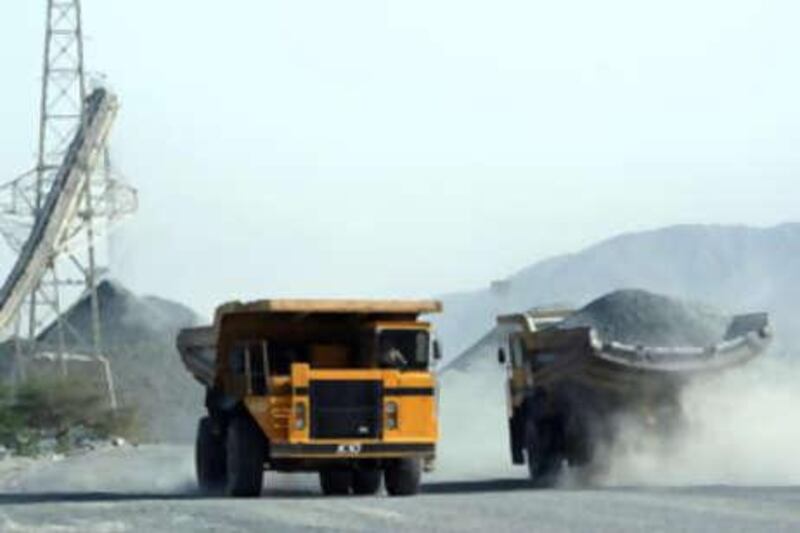The Government introduced strict air-quality guidelines yesterday to stop quarries from creating clouds of dust and toxins harmful to nearby residents. The guidelines, which apply immediately for companies starting up new quarries, specify the amount of sulphur dioxide, carbon monoxide, nitrogen dioxide, ozone, suspended particles and breathable dust that is permissible at quarries. Existing companies have a year to comply and are expected to present implementation schedules to the federal authorities within two months.
The guidelines detail the measures to ensure the industry reduces dust emissions. They also focus on noise, health and safety practices, ecological factors and the transportation of rock. The regulations follow a cabinet resolution earlier this year that the environmental impact of quarries and crushers should be assessed and better controlled. For the first time, operators must submit maps of the areas where they operate as well as data about the quantity of rock they produce and their emissions and noise levels.
This will give environmental authorities important information about how the industry in the Hajar Mountains of Fujairah and Ras al Khaimah, where more than 90 quarries and crushing plants are located, is affecting the hundreds of animal and plant species native to the mountains. Many quarries are near villages and towns, and residents have complained about noise, dust and vibrations which damage property. Lack of planning and implementation of existing environmental protection laws has meant quarries have been allowed to operate close to homes and farms.
The quarrying industry has threatened the already endangered wildlife of the Hajar Mountains. Species whose existence could be at stake include the Arabian tahr, a goat-like animal which only exists in the mountains of the UAE and Oman. Sweet-water wadi fish are also threatened as the industry's unregulated growth is damaging the mountains' fresh water catchment basins. Hamad al Matroushi, an environmental impact assessment specialist at the Federal Environmental Agency, says the guidelines represent a challenge for about 80 per cent of the quarrying industry.
"Most of the companies have a lot of work to do," he said. "This is why we have so much pollution." But some international companies were already complying or close to complying with the rules, he said. Failure to adopt the guidelines would mean cancellation of a company's trade licence. Required measures to improve air quality included: fitting fume filters on diesel engines on site; proper covering of lorries loaded with rocks; no overloading; fully enclosing crushing plants in steel structures to reduce noise and emissions; and installing at least one stationary dust scanner to monitor the amount of respirable dust particles small enough to penetrate the lungs. The data must be forwarded to local and federal authorities every month.
Respirable dust is dangerous as it settles in the lungs, forcing the heart and lungs to work harder to provide oxygen to the body. It can lead to heart damage. Residents of Fujairah and Ras al Khaimah have also complained for years that quarries and crushers are noisy and blasts cause vibrations that damage property. The new guidelines state that facilities less than 3km from residential areas can only drill between 7am and 8pm. Blasting must be carried out in the presence of civil defence staff and police, and vibrations must be monitored and sound barriers erected.
@Email:vtodorova@thenational.ae






